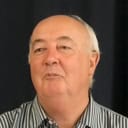N.Z. Kiwi Badge: Worn at multiple international Deaf events: CISS Congress 1953, Helsinki 1961, Washington 1965, Koln 1982 and Los Angeles 1985
A badge with N.Z. and a kiwi on it, donated by John McRae. This was worn on the many international Deaf events he attended, such as the CISS Congress Italy 1953, the 1961 World Games for the Deaf in Helsinki, Finland (where he played basketball and wrestling), 1965 Silent World Games in Washington D.C., the XIV World Games for the Deaf In Cologne, Germany (1981), and the Los Angeles World Games for the Deaf (1985). John McRae was a life member of Auckland Deaf Society.
- Deaf Sports

























